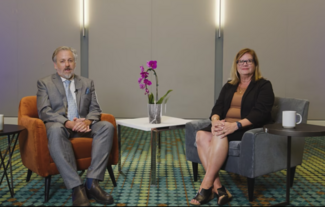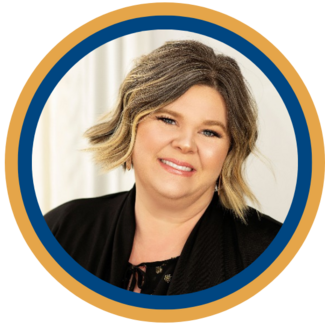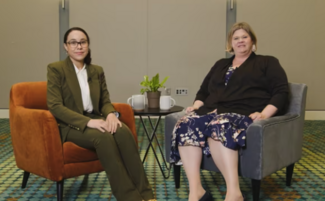Assessing Shame-Based Family Dynamics When Treating Children With ADHD
What role do shame-based family dynamics play in the progression of attention-deficit/hyperactivity disorder (ADHD) in children? Filmed ahead of her 2025 Psych Congress Elevate session, “Unraveling the Knots: Family Centered Strategies for Attention Deficit Disorder,” Sarah Slabaugh, DO, offers practical insights on identifying dysfunctional family patterns that may impact the presentation of ADHD symptoms in child and adolescent patients. In this informative discussion, Dr Slabaugh emphasizes the importance of recognizing the ways shame may show up in family systems, embracing behavioral-based therapies, and understanding the benefits of family-centered treatment models in ensuring better outcomes for young patients with ADHD.
For more conference coverage, visit the Psych Congress Elevate newsroom.
Read the Transcript
Sarah Slabaugh, DO: Hello, I'm Sarah Slabaugh. I am a doctor of osteopathic medicine and an assistant professor of psychiatry at University of Massachusetts-Baystate. I practice child and adolescent psychiatry in the setting of emergency rooms, consult-liaison work, and I have a private practice as well.
Psych Congress Network: How do shame-based family dynamics uniquely impact the presentation and progression of ADHD symptoms in patients?
Slabaugh: Shame-based family systems are something that we see impact the development of substance use disorders (SUDs), as well as oppositional defiant disorders (ODDs) and conduct disorders, and these are all disorders that have a high comorbidity with ADHD. We see these show up with things like control, perfectionism, criticism, and when we are able to assess these in the family system and address them with therapeutic methods, then we're able to actually see improved outcomes with ADHD. We can see families shift their behaviors in such a way that can actually protect against developing some of these comorbid disorders.
PCN: How can clinicians effectively assess whether a family system is operating from a place of shame, and how should that shape the initial treatment plan?
Slabaugh: Learning more about behavior-based therapies and shame-based family dynamics is a way that clinicians can become more familiar [with assessing shame-based family systems]. This could be through seeing families over extended periods of time and just studying more about shame. Shame is something that we've started to talk about a little bit in popular culture—you may be familiar with Brené Brown's work, who covers this extensively—and this really fits and interlaces with ADHD work.
As you become more familiar with behavior-based therapies, which are the treatment of choice for ODDs and conduct disorders, there is an overlay in these strategies. If you become comfortable and familiar with understanding them, you can make an assessment simply through seeing the family and the child together. You can see some of these behaviors present and have strategies to talk to the family about how therapy can be helpful, as well as keys that you as a clinician can have to help the family move through [shame-based behaviors].
PCN: What are some of the most common misconceptions clinicians may have when treating ADHD within dysfunctional or shame-driven family systems?
Slabaugh: I think most commonly we tend to focus on the child as the problem and the child as the patient to be “fixed.” And really, what we see with shame-based family dynamics is that this is a family problem and a family pattern that we're assessing. When we're able to shift the focus from the child having the disorder or the child having the disease to see how the behaviors within the family perpetuate the behaviors that we're seeing and assessing in the room, this allows us to make more movement. As long as you stay focused on the child, you're not going to see things move and progress for the family; the family is where the shame lives.
Thank you so much for joining us today. I hope this is helpful in your clinical practice, and I hope you're able to see the entire talk and to join us next year.
Dr Slabaugh’s full session can be viewed by conference attendees on Elevate’s on-demand platform beginning June 30, 2025.
Sarah Slabaugh, DO, is a board-certified child and adult psychiatrist and an assistant professor of psychiatry at UMass Chan Medical School–Baystate. She provides consultation in interventional psychiatry, integrated behavioral health, and psychiatric care in pediatric and emergency settings. She is also the co-owner of HS Psychiatry, specializing in ketamine-assisted treatments for psychiatric disorders. Dr Slabaugh's clinical interests focus on interventional psychiatry for transitional-aged youth and treatment-resistant conditions. She is passionate about family-based intervention models and exploring emerging treatments—such as ketamine, psilocybin, and MDMA—and their risks and benefits in the young adult population.
© 2025 HMP Global. All Rights Reserved.
Any views and opinions expressed above are those of the author(s) and do not necessarily reflect the views, policy, or position of the Psych Congress Network or HMP Global, their employees, and affiliates.



















